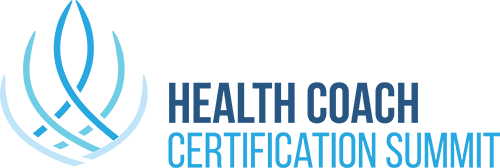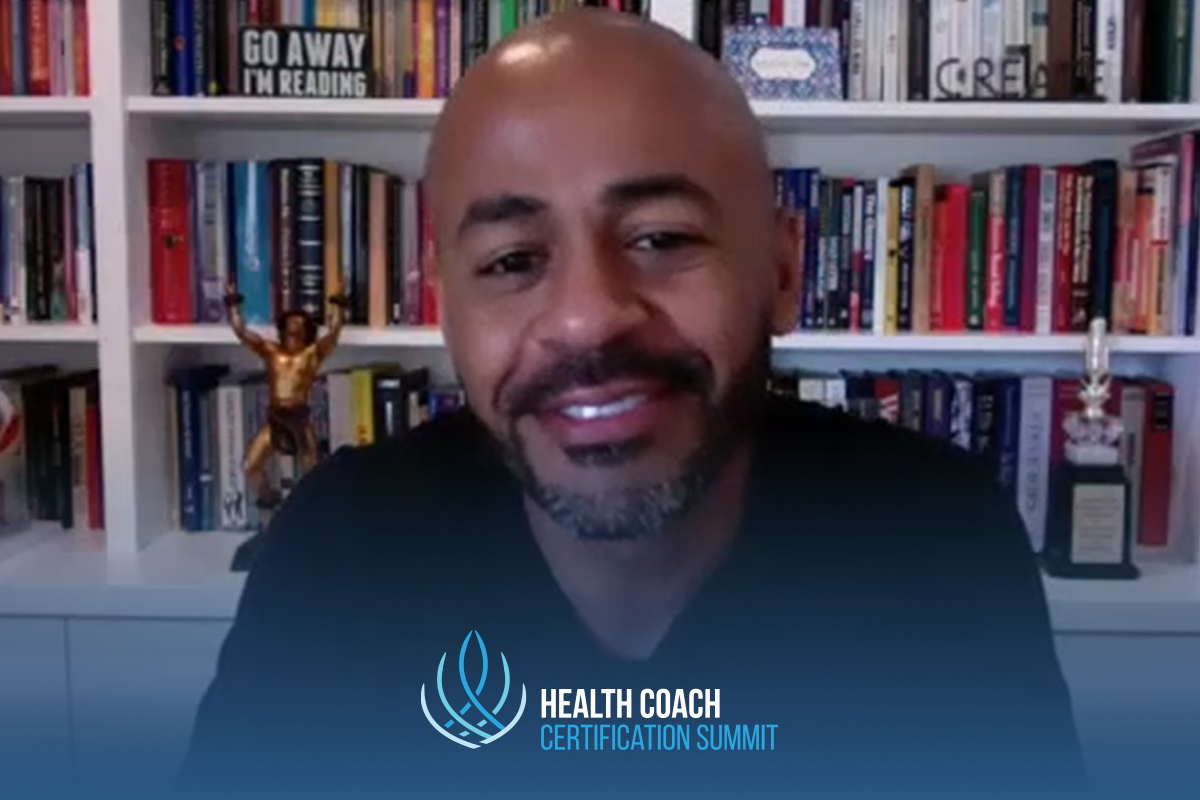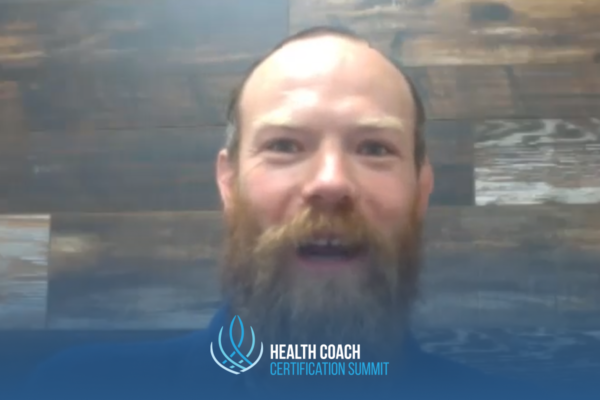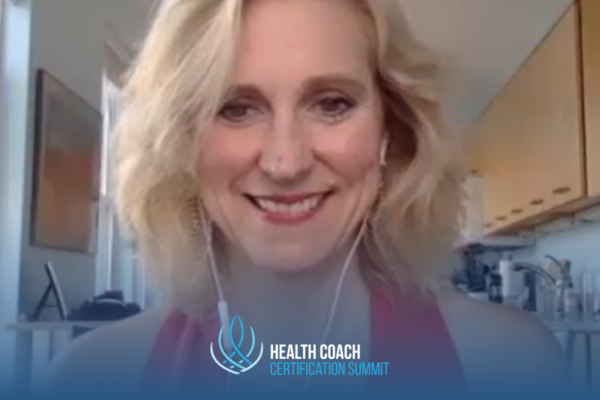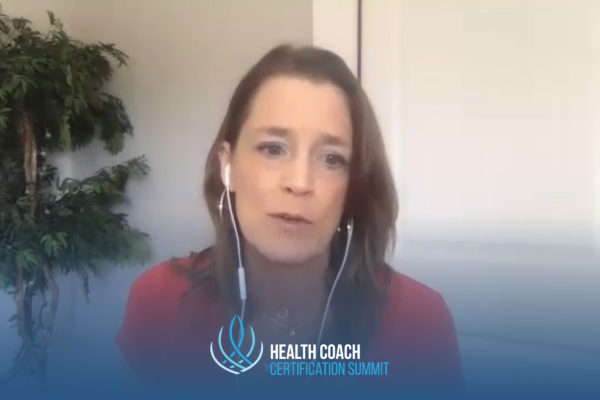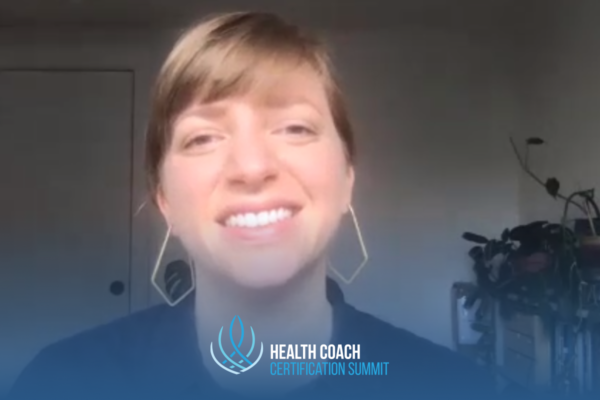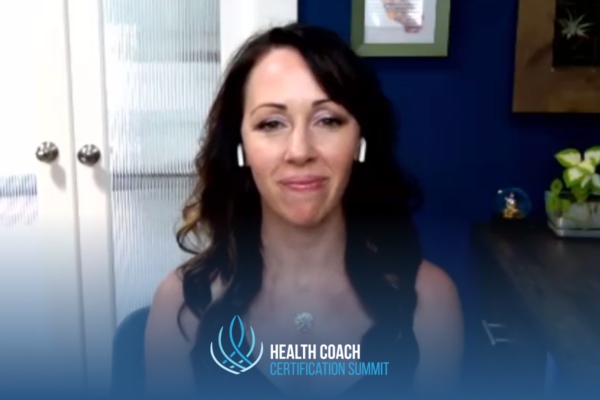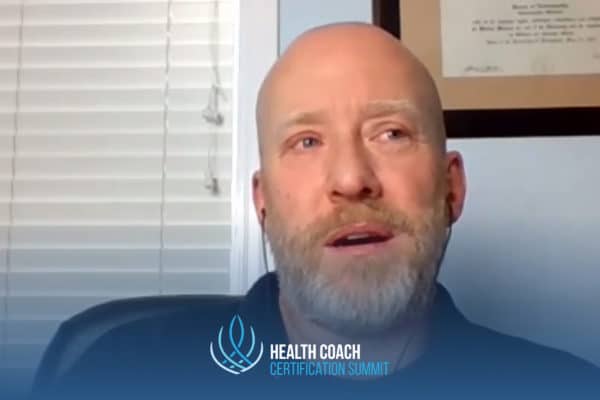Join the discussion below
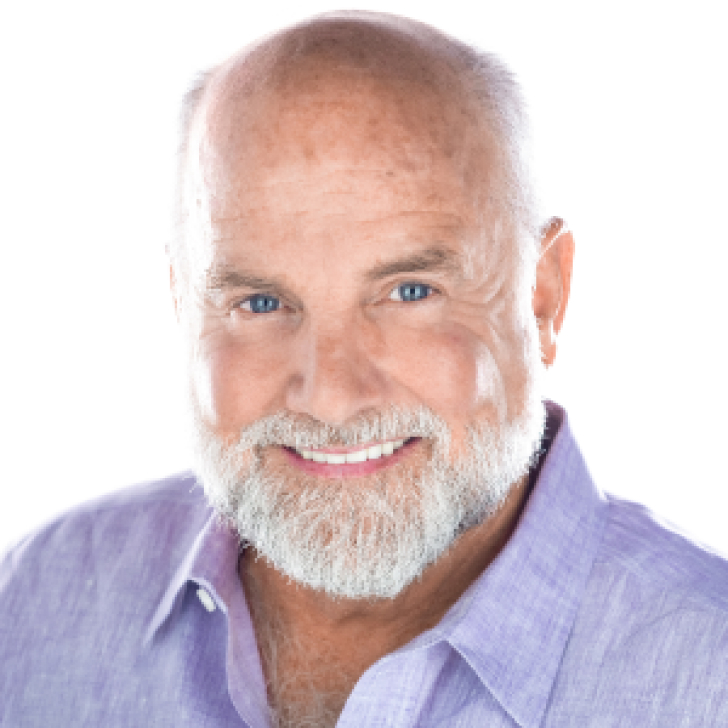
Reed Davis, Triple-Board Certified Holistic Health Practitioner (HHP) and Certified Nutritional Therapist (CNT), is an expert in functional lab testing and holistic lifestyle medicine. He is the Founder of Functional Diagnostic Nutrition® (FDN) and the FDN Certification Course with over 3000 graduates in 50 countries. Reed served as the Health... Read More
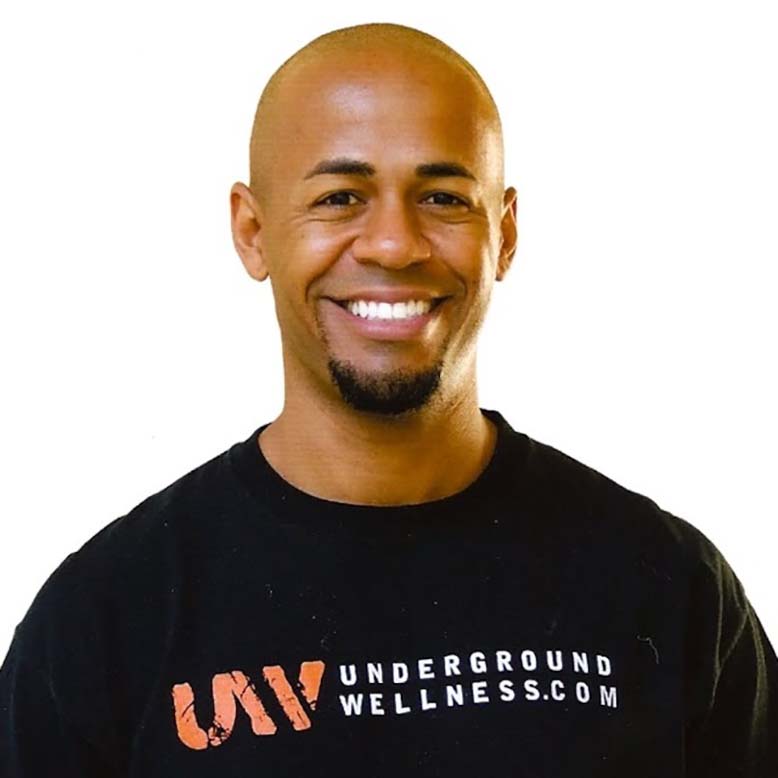
Sean is a podcast host, author, entrepreneur, and prosperity teacher. You may know him as the host of Underground Wellness Radio, one of the internet’s most popular health podcasts. During his seven years with Underground Wellness, he penned the still-popular Dark Side of Fat Loss ebook, started the JERF (Just... Read More
The Money Mind Academy is an 8-week course that will completely change your relationship with money. In this interview, Sean sahres information on how his course, Money Mind Academy, specializes in shifting people’s money focus by identifying their fears, feelings, and beliefs towards money, understanding the deep importance that BEING has before DOING when wanting to become an entrepreneur, the importance of changing our mindset towards money. It’s not evil or greedy; money is what keeps us alive, and the existing and deep fear of the unknown that we all naturally have and the importance of learning how to manage it in order to reach success.
Related Topics
Exercise, Fitness, Growth, Health Coaching, Meditation, Mental Health, Mind, Mindset, Nutrition, Personal Development, StressReed Davis, HHP, FDN-P, CMTA, CNT
Thanks for coming back, ladies and gentlemen. Today I have one of the most special guests we could have. It’s a guy that I’ve been really close to since the last decade. Again, buddies, business partners and associates, Sean Croxton Croxton, he’s a podcast host, author, entrepreneur, and prosperity teacher. You probably know him as the host of the Underground Wellness Radio. That’s one of the Internet’s most popular health podcasts ever. I believe I was his first guest on that. During his seven years with Underground Wellness, he penned the still popular Dark Side of Fat Loss ebook. He also started the JERF, Just Eat Real Food movement, which is amazing. He also did seven online summit events, including the thyroid sessions, digestion sessions and the depression sessions, which were phenomenally successful. Matter of fact, I think Sean Croxton wrote the book on having these kind of summits that we’re having right now.
After ending the UW podcast in 2015, he decided to move on from holistic health to something that’s maybe even more dear to his heart. He’s going to tell us all about that, and that is how to create a new—he created this new movement in the world of personal development and the science of mind. I’ve always known him to be a big nerd. So now he’s the host of—and this is something I subscribe to, I get every day—it’s The Quote of the Day Show. That is now the number one daily motivational podcast, featuring short, inspirational teachings from the best of the best speakers. Sean Croxton, I love that one from Les Brown the other day, I’ve become a big follower of his. He’s also got a book club that goes along with that. He’s also the creator of the Money Mind Academy. Now that’s the program, along with a couple others, that we brought him on to talk about. That’s an eight week course. It will completely change your relationship with money. We all know health coaches tend to think that—they undervalue themselves in my mind, having trained them since 2008. So we’re going to talk a lot about money, mind, and how health coaches can start to realize how much money they’re actually worth. His personal philosophy is little by little, a little becomes a lot. He loves to read books, hit the gym, meditate, watch basketball—I’ve actually played basketball with him—and eat real food. He is like I said, just one big nerd at heart. Sean Croxton, big hugs and love to you, man. I’m so glad to have you on this podcast and summit interview, man.
Sean Croxton
Thanks a lot Reed, I appreciate it.
Reed Davis, HHP, FDN-P, CMTA, CNT
Yeah, say hello to the group. You probably have 20,000 health coaches or want to be health coaches listening. So, say hi and tell us more about yourself. How you got—
Sean Croxton
What’s up my my friends! Gosh, I think you pretty much covered it all. I’ve been in the health and wellness space, or I was in the a health and wellness space, starting back in 2007 doing YouTube videos, creating podcasts, kind of one of the first people to be doing podcasts in this space and doing YouTube in the space. I just saw the opportunity, saw the ability for us to go out there and get a message out there to the people for free, through YouTube and podcasting. And, like you said, created those summits. At some point decided I had to roll out of there. It just wasn’t as fun as I thought it was, or as it used to be, I should say.
I’m doing personal development now, love it. That’s one thing that I found as a health coach was that beneath all of these functional medicine things and all of these pillars and these systems is the mind. Everything begins with the mind. One thing I noticed was that the clients that I worked with who got the results the fastest were the ones who had the best attitudes. The ones who were just kind of like, “Woe is me. The world is against me”, with a victim mentality were the ones who just didn’t get much better. One thing I really didn’t want to be, even when I was a personal trainer, was I didn’t want to be a therapist. I don’t really care about the mind part of it. I just wanted to do the physical stuff. I just realized at some point that you cannot separate the two, they are just one in the same. So I just kind of went down this rabbit hole of learning how the mind works, how the subconscious mind works. I kind of got myself here five years later after moving off from Underground Wellness. And I’m really glad that I did.
Reed Davis, HHP, FDN-P, CMTA, CNT
Yeah, I know. We’ve been in touch constantly, but you were a personal trainer. You came out of college and were training people and then you became a health coach and you did that for a while. So I want to be really honest with the listeners, ’cause some are health coaches already. This summit we’re having a
lot of people who are training health coaches, some are doing the spiritual aspects, some are talking more about just weight loss, some are talking more about certifications and include a wide range of specialties, things like that. This area that you’re in, I really think that you nailed it when you switched, but you spent seven years doing the Underground program. You’ve interviewed every person in the health space. Was there anything common among—if you go back to the Underground Wellness days, and all those hundreds of people you interviewed—that was common enough that we should all be aware of it? Even if you end up specializing in something else. What was the most common thing you found in the sort of alternative health space? All those people’s books
Sean Croxton
Not only does it begin with the mind, but in speaking with people, it was to eat real food, and that was my thing. Sure, if we just eat real food—because if we can all agree on one thing, it’s eat real food, don’t eat the processed, packaged stuff. The science experiments that Big Pharma puts together for you, just eat real food, try to make it organic, wild, free range, biodynamic, if you possibly can, eat real food. Reduce stress as well, I think is the common denominator amongst all the people that I interviewed.
Reed Davis, HHP, FDN-P, CMTA, CNT
Yeah, and they came from all walks of life and things. One of my gurus now, his name is Sadhguru. He’s from India and like a real guru, and I listed to his podcast almost everyday and he talks about food a lot he says “you’re made of food” like you’re made from food how do you get from this big to as big as you are now. Well you put food in there and cells growing, changing and you develop and things like that so that was an amazing thing. What I love about you Sean Croxton is that you are a thinking man, you don’t seem like a nerd but you got nerdy habits and you just like to read you know what I mean. You’re no Nerd man
Sean Croxton
I’m a nerd! I like being a nerd. I love reading stuff. I love watching programs that are educational. Most of all, I love sharing what I learn with with other people. ‘Cause why keep the information to myself? That’s why I’m so happy that we have all these different platforms these days, whether it’s social media or YouTube or podcasting or blogging, just the internet in general. These days, if you have a message, if you want to help people, there’s really no excuse for not doing it. Everything’s there, it’s never been this easy in the history of the world. So let’s go do it. Let’s help people.
Reed Davis, HHP, FDN-P, CMTA, CNT
Did becoming a health coach and having some success in that area and the things you realized—then you became like this super—I mean, I’ve watched a lot of the people I know, go from health coach to other things. And it’s a great launching point. I just want you to tell us, do you think that if you hadn’t been a health coach and done that podcast you’d be doing what you’re doing now?
Sean Croxton
Oh, that’s a really good question. Probably not, but then again, maybe. I mean, it’s really hard to say. I will say that I’ve been reading personal development books for a long time. Even in the beginning, when I was learning about health and wellness, I was interested in personal development, whether it being reading Think and Grow Rich, or the Tony Robbins books, or whatnot. So I’m not sure if I would have turned personal development into a career, but I certainly would have been a huge fan of it. It would have played a role in my life. One of the reasons I do what I do on the internet is because I learned how to do it through Underground Wellness.
So where everybody was like, “Man, you’re crazy leaving underground wellness. Like, it’s a huge business and there’s such and such, hundreds of thousands of people on the email list and you’re making millions of dollars, like why move on from this?” It was just because I had the confidence that I could do it again. I know all the principals, I know how to go out there and help people. I know how to use the internet. I know how to put a message out there. So let’s just do it with a different topic. So Underground Wellness was certainly the the jumping off point for what I’m doing in the personal development space.
Reed Davis, HHP, FDN-P, CMTA, CNT
Yeah. I see it as a growth of development theme and not like you went off to become a rocket sciencist. I mean, I’m sure you could be a rocket scientist too, but it’s still about people, it’s still about helping people. It’s about having them reach their max. One was more on the physical level and now you’ve gone more to the mental level. And we’ve had speakers on this summit just strictly about the spiritual level. I know meditation is one of your regular habits. We’ve talked about that before. So it seems that you do the most, reading books, hitting the gym, meditating, watching and playing basketball. How does that fit into your general philosophy of little by little, little becomes a lot? Just tell us more about Sean Croxton. I want to get into your head a little bit more.
Sean Croxton
Yeah, yeah, yeah. I mean, like Jim Rohn says, “Everybody needs a personal philosophy”. It’s almost like this story that Will Smith told about when he was a kid and his father would be like, “I want you and your brother to build a brick wall.” But you don’t look at it that way. You don’t go out there, you say, “I’m going to build the biggest, baddest wall that’s ever been built.” What you do, is you say, “I’m going to lay this brick as perfectly as it can be laid.” And soon you have a wall. Right?
Reed Davis, HHP, FDN-P, CMTA, CNT
Yeah.
Sean Croxton
That’s how—I feel like I’ve always thought about it that way for as long as I can remember. I remember being in high school, in college saying, “Okay, this test is three weeks away. If I spend two hours tonight studying, going over my notes, rereading the chapters, and I do it again tomorrow. And I do it again tomorrow. And I do it again tomorrow. By the time this test comes, I’m gonna crush this test.” I was the one—the teacher would hand out the test and if it was multiple choice, I would be done in like six minutes and hand it in. The teacher would be like, “You gotta go to the bathroom or something?” I’d be like, “No, I’m done with your test”, because it’s just brick, by brick, by brick. I think that’s the difference between successful people and people who aren’t so successful. The people who aren’t so successful, they want the wall today. They wanna just throw up a wall and be like, “I’m done with the wall. Yay, we got a wall.” That’s not how it works. It’s not how it works. You gotta do it one step at a time. I like to flash myself forward. Even when I got out of Underground Wellness and I was like, “I’m gonna build this brand new thing.” I said, “I’m not going to be able to build this brand new thing in personal development overnight. This is going to take some years. It’s going to take some time. It’s going to take book, by book, by book, by book, by book.” There’s a thousand books in my house, at least.
Reed Davis, HHP, FDN-P, CMTA, CNT
Yeah.
Sean Croxton
I’ve read hundreds of them over the last five years. One book leads to the next book, leads the next book. Then next thing you know Reed, is like, you have become one of the world’s greatest experts on a topic. That’s really a choice that you have where you can choose not to do it. I don’t think there’s anybody in the world right now who teaches money mindset as well as I do, because I’m obsessed with it, right? Or like, if someone’s going to start today and try to be as good as I am teaching money mindset, they got a lot of catching up to do. There’s not that many people who are going to be as obsessive about it as I am. This is talking about spending hours a day doing and getting better and better and better and better at it. I think as health coaches, we need to understand the same thing.
I remember—’cause when I took your course, Reed, it was a weekend workshop. So there were—it wasn’t—I don’t even think—it might’ve been recorded. I’m not sure if it was, but I just remember going… Man, I was probably hungover that weekend. Did this course in San Diego. I’m laying on the couch. I learned some stuff, but do I feel like I know enough to work with people’s hormones? I don’t know. I don’t know if I remember enough from that weekend. I remember going to Amazon one night and buying a stack of books on hormones and said, “I’m going to go through every single book. One at a time. Then I’ll probably reread them once I’m done.” That’s how you become an expert at something. Most people are not willing to do that. They would rather sit on their couches and watch Netflix and complain about their lives than actually sit there and do something about it. That, as a health coach, is what you have to be willing to do. Go through the course, but also spend your own time doing your own research, doing your own reading and little by little by little by little becoming the expert in your field—not an expert in your field—but the expert in your chosen field.
Reed Davis, HHP, FDN-P, CMTA, CNT
Oh man, I couldn’t agree with you more. I remember those days, not only did you go and buy some books, but you made a lot of phone calls to me going, “But what about this? And what about that?” I remember, man, of everyone that was in that very first FDA course ever—it was a weekend workshop at the time—now it’s an eight month course. It’s very robust and big. But yeah, I totally remember, “Sean Croxton from San Diego, he’s like…” You were relentless!
Sean Croxton
I wanted to understand because as you read more and you learn more, you have more and more questions because you never know it all. As you learn more, you start to realize that even though I’m learning more, I’m starting to realize that I really know nothing. So if things don’t jive, I’ve got to resolve it. If not, I end up in this conflict and I’m not sure what to do. There’s inertia. There’s not a lot of action. So, of course, I became your problem child, as you would say. Just asking questions, asking questions, but at the same time learning, but being willing to take action. I mean, going back to Will Smith, The Pursuit Of Happyness, he’s traveling around town with a bone density scanner, right? What was I doing for you? So everybody who’s listening, Reed Davis had a bone density scanning business in San Diego. He would go to the different local health food stores. I took that over because I needed clients. So I would drive around my little Mazda 3, with a little tiny trunk where the bone density machine just barely fit in that thing.
Reed Davis, HHP, FDN-P, CMTA, CNT
Yeah, I remember.
Sean Croxton
Barely. It was so hard to get out, but twice a week, or whatever it was, I would pack it in the car and I would drive all over San Diego doing bone density testing, helping these women, telling them more about functional diagnostics, diagnostic nutrition, trying to sign them up for consultations. I went out there and I hustled ’cause there was a vision as to what I wanted to create with functional diagnostic nutrition. When I first heard about functional diagnostic nutrition from Francesca, I was like, “Oh man, that’s an opportunity because this is going to be able to separate me from all the other personal trainers and health coaches out there. I’m going to be able to run tests, run labs, on people. Nobody else can do that.” So I had a vision, but I needed clients. And I was doing the internet thing, but I was able to team up with you and get to know you better and to get out there and hustle. It led to a very successful business. That’s what I wish more health coaches were willing to do. To go out there and help people and get dirty.
Reed Davis, HHP, FDN-P, CMTA, CNT
Well, we gotta get more people like that, Sean Croxton. This is about you, but that was a very exciting time for me, too. ‘Cause you were a great learner and you took all of that, did well with it and then found your place and you far exceeded me in many ways. So I’m really, really proud of you man. But that was your drive. You’re the only one that would work that hard. Because it was hard work, you know? It’s hard to find someone that just will do things ’cause they don’t know they can’t do them. There’s some kind of expression around, “I did all that ’cause I didn’t know you can’t do it.” You wouldn’t know—
Sean Croxton
I mean, what does it all begin with Reed? Even Napoleon Hill said, “It all begins with desire.” You have to have a desire. I had a desire to have a successful health coaching practice. I didn’t just have a desire to have a health coaching certification. A lot of people will be like, “I just wanna health coaching certification.” Well that’s good. You can get your health coaching certification, but the next thing is you have to create a business out of it. You’re going to have to be willing to do some business things. You’re going to have to be willing to get in front of the people. You gonna have to market, you’re gonna have to sell. You’re gonna have to talk to people, like they’re—75% of health coaching is stuff you didn’t even learn in your certification. It’s the sales, the marketing, the speaking, the connecting, the hustle. It’s the grind as you build up your business. But a lot of people, a lot of coaches don’t want to look at that.
They just want to read books about health and somehow, some way, magically all of this business is going to show up. But if you don’t have the desire for the business, if you just have a desire for more knowledge in the health game, well, you’re just going to be really smart. But what else are you going to be? You’re not going to be helping anybody. You’re going to be able to help maybe your family and your kids. You gonna be able to help yourself, but damn, you just spent 10,000 hours reading stuff that no one’s ever going to know about because it’s all stuck in your head. You know what I’m saying? You have to be serious about the marketing and the sales side. I had a guy interview me recently and it was so funny ’cause I remembered him, too. He interviewed me for his podcast.
He’s a naturopathic doctor now. And he’s like—he wrote me, he was like, “Hey, do you remember me? I met you at Paleo f(x) and I asked you for some advice, some real quick advice.” And I told him—this is what I said to him. I said, “Don’t be a broke ass naturopathic doctor, learn sales, learn marketing.” He took that to heart and now he’s got a successful business, right? So I want more health coaches to be successful. I think the average health coach makes $46,000 a year. We can do way better. ‘Cause I can throw a rock outside my window and I can hit somebody who has a health condition, but they don’t know about you.
Reed Davis, HHP, FDN-P, CMTA, CNT
Yeah. I didn’t know that statistic, but I recently studied chiropractic for a research I was doing. I went to Forbes and they said the average chiropractor comes out of chiropractic school $150,000 in debt. They haven’t bought any chiropractic equipment. They haven’t rented a space. They haven’t hired any staff.
They don’t have any customers and they’re already 150 grand in debt. And the average salary for a chiropractor in the US is 85,000. Now our graduates are all encouraged and trained that if they’re not making a hundred thousand, they’re doing something wrong. They’re doing something wrong if they don’t make it. In some States, chiropractors are making 50 grand or less a year, like Wyoming or something it’s 46 grand average. 150 grand in debt, haven’t spent any money on your business and don’t have any customers and you’re gonna make maybe $80,000 a year. I think health coaching presents much better prospects for certainly a lot less of an investment. Wouldn’t you say?
Sean Croxton
Absolutely. I mean, let’s think about this. Most coaches are gonna have their clients on a 12 session package. So a three month package—not every 12 session package is a three month package, but we’ll say—the number of sessions is going to vary, but that’s $25,000 per quarter. You’re working with a client for a quarter because that’s 12 weeks, right? So a hundred thousand dollars a year divided by four is $25,000. Divided by three is a little over $8,000 a month. You need 8 clients to pay you $1,000 a month to make a hundred thousand dollars a year. You can do that. You can do it, it’s a $3,000 package. That’s all it is. So think about this my friends, you work Monday through Thursday, two hours a day. That’s eight hours. Those are your eight clients that you’re working with. They’re paying you a thousand dollars a month and you’re good to go. This is really easy and that’s not including any group programs.
That’s not including any online courses products, any supplement commissions. If you’re a health coach, like you said, and you’re not making a hundred thousand dollars a year, your shit is broken. You h ave to do something about this. You’ve got to be serious about the marketing and the sales side because, yo, like if I got back into health coaching, it would be a multimillion dollar business. Because again, there is not only a need for what you do, there is a want for what you do. There are people out there who literally Reed, are worrying 24 or 16 hours a day. As long as they’re awake, they’re worrying, are they going to poop on themselves? They’re worried about their next headache.
They’re worried about, where’s the bathroom where I go? These are real problems that people want solutions for. But the problem with our health coaches is our health coaches are like, “I help you with everything.” Yo, if I got pooping problems, I don’t want to go to the person who wants to help with everything. I need a specialist. I need a master on fucking pooping problems. Pardon my French. Right? There’s these very, very basic principles of marketing and sales that health coaches have a tendency to absolutely ignore because they’re trying to be so different from conventional medicine. They say, “Oh conventional medicine, allopathic medicine does specialization. I hate allopathic medicine because they specialize. Therefore I’m not going to specialize.” Like no, there’s a reason why the neurosurgeon gets paid way more than the general practitioner. If you are a general practitioner health coach, you are not making any money. Period. Point blank.
Because the words you use in your messaging and the words you use on your website don’t connect with anybody because they’re vague, because the person who lands on your website, who’s like, “Damn, I keep pooping on myself or I don’t poop.” They’re like, “I don’t want optimal wellness. I want somebody to help me with my pooping issue.” So there’s no resonance and it doesn’t connect and you lose customers and clients over and over and over. Like, Reed, you and I can fix health coaches’ businesses in like three hours. Do this, do this, don’t do this, do this, do this. Now just go out there and do that and you will triple, quadruple your income. But the problem is—I’m on a rant right now—is that health coaches for some reason don’t want to do it. It blows my mind because it’s so simple my friends. It is so simple. Find a niche, speak their language. Stop making your website all about you with a fucking novel of words all over your website. Let’s condense this. Let’s not dumb it down. Let’s make it simpler and more clear. Then you’re going to have clients. All right. You can tell I’m very passionate about this.
Reed Davis, HHP, FDN-P, CMTA, CNT
Listen, man. You have that messaging make-over program, which you were just kind of alluding to that the messaging is really wrong. It’s like the idea of optimal wellness, I’ve never had a phone call, “Hey, do you sell optimal wellness?” No, it’s like, “I’ve got migraines. I’ve got irritable bowel, or I’ve got…” So you’re right on spot on there. But let’s say you have a—and this is where we have some issues in our alumni groups. Our people take our course and then they go into this alumni group where the professionals hang out. So I’m not talking about your hobbyist health coach, which are wonderful people, or even your institutional health coach who works in an office for doctors somewhere, helping them follow the program. Those are all valid things.
We have a lot of our graduates end up in industry, they’re working for supplement companies or lab companies, things like that. ‘Cause they love talking to the other practitioners, they don’t necessarily get real good at being one. But man, there is a ton of people who—they’ve got the desire. They really want to help people. They’re willing to walk the talk and they’re living a great lifestyle, at least as far as eating right and things. They don’t have a lot of money yet, maybe, for all the fancy trips or memberships or something like that. But they have a problem and it’s the mentality that they don’t like selling—or they just don’t think they’re worth enough. Like, how am I gonna get $5,000 for a package? You know? Like it just scares the crap out of them. They want to do all this work for a person, almost give it away. That’s where I have more of another issue too. But what would you say to that person?
Sean Croxton
That’s a big one, man. When it comes to sales and marketing and just money mindset kind of stuff, I have these seven Fs for financial abundance. The first one that needs to be addressed, my friends, is your filters. The way that you see the world, the way you perceive the world. I mean, if you think about it, what is selling? Selling is communicating the value of a product or a service. Then in exchange for that product or service, you are receiving money. That’s really all it is. That’s really what—it’s rather a neutral. What is marketing? Marketing is the same thing. It’s getting a message out there to the masses so they’ll know about you, they’ll know about your product and its benefits. Then they’ll go ahead and purchase that from you or at least they’ll know about you. Then what is money? Money is just green paper, right? It’s just neutral. It’s green paper. It doesn’t talk shit to you. It doesn’t say nice words to you either. It’s just a piece of paper, right? So what we have done, or what has happened to us over our lifetime, especially before the age of seven is we have been conditioned with certain beliefs that were not really our choice.
I teach a whole 90 minute module on this, but when we’re born and we’re trying to learn how to survive in this world, we listen to the words and the beliefs, the ideas and the opinions of the grown ups. What they believe becomes our beliefs. As we grow up into adults, these beliefs never—we never re-examine these beliefs to figure out, determine, “Hey, is this true or not? Is this BS or is this like the real truth?” And there are some serious conflicts that come up because we may have a coach on this call who’s like, “I want to make a hundred thousand dollars Sean Croxton and Reed, but I keep stopping myself every time.” That’s because you’re running a conflict because you have a belief that is opposing to your goal. Your prefrontal cortex is like, “Yo, I want this, I want this.” But your survival brain, even your amygdala, which is more like the emotional brain, is saying, “But wait, you believe that people with money are greedy. You believe that money evil. You believe that money makes people fight. You believe that money makes parents get divorced. You believe that selling is bad and selling is manipulation, as is marketing.”
So you’re essentially saying, “I wanna make a hundred thousand dollars and fight with my spouse and be an evil greedy person and be one of them.” You put yourself in this conflict and the brain will just lock up. I call it pooping in the pool of your prefrontal cortex, which is responsible for making decisions, for getting into action, for imagining things or holding that stuff on the screen of your mind, your vision, for making plans as well. This is what happens. We get going for about five, six, seven days, and then we’re like, “Oh”, that negative self talk starts to come and we talk ourselves out of it. Then we’re back at square one. This is because these beliefs have not been examined. I do this class, it’s class number two of Money Mind Academy, it’s called Reexamination. So we reexamined these beliefs and I tell you, we use these six questions and by the end of the hour, my students are like, “Oh shit, I can’t believe I believed that stuff for 30, 40, 50 years. This is insane.” But the thing is, you started that belief or you took on that belief before you had a choice in the matter.
The thing is my friends is that you got to figure out what those beliefs are. You have to address those beliefs because when you change the beliefs, your filter changes. Like Wayne Dyer says, “When you change the way you look at things, the things you look at change.” So when you change what you believe about money and sales and marketing and yourself, then everything changes. You change, your business change, your ideas about money and sales and marketing they change, and you no longer feel like something’s holding you back. It just becomes your natural part of who you are. I don’t have—just like you, you don’t have a problem selling. You don’t have a problem marketing. You have no problem with money, right? I’ve been to your big ass house! It’s an amazing house. But we’re aligned, right?
Reed Davis, HHP, FDN-P, CMTA, CNT
Yeah.
Sean Croxton
You and I are aligned. Now, It wasn’t always that way for me and that’s why I teach Money Mind Academy, because these are things that I had to figure out along my journey. Just real quick, I remember back in 2009 Reed, I had 30, 40,000 YouTube subscribers and was just barely getting by, just barely getting by because I was afraid to sell. I was afraid to really put my all into it. When we’d get on the call—and I built up all this knowing, liking and trusting in my audience for me. They felt like they know they can trust me. However, when I would get to the part of the phone call when it came down to the price, “Uh..uh…uh…” You know what I’m saying? I started giving discounts and stuff like that because I felt bad for—
Reed Davis, HHP, FDN-P, CMTA, CNT
Just killing yourself.
Sean Croxton
I don’t feel bad for charging anybody anymore because it’s exchange, man. There’s this concept in the book The Science of Getting Rich by Wallace D Wattles.
Reed Davis, HHP, FDN-P, CMTA, CNT
Yeah, got it.
Sean Croxton
It’s a book I’d recommend everyone to read. The Science of Getting Rich. He talks about cash value versus use value. So, you know—I took your course, this is a perfect example of it. Cash value for your course, back in 2008, was like $895, right? The first class. I’ll always tell the story about how I took my TV back to Best Buy and got the money and then I gave it to you. Right?
Reed Davis, HHP, FDN-P, CMTA, CNT
Yeah.
Sean Croxton
But that’s the cash value of your course. The use value of your course was millions of dollars because I took what I learned from you, I expanded on it through all these interviews that I did, and it literally made all of these summit sales, [inaudible] sales, and all of that stuff. Now think about it, that person who’s having to know where the bathroom is everywhere they go, who doesn’t go out on the weekends because they’re afraid what’s going to happen, who’s having accidents and such, who’s been dealing with this for years, can’t have a physical intimate relationship either because of embarrassment. What is the value for them? The use value for them is astronomical. It’s astronomical. You’re charging them $497 for 12 weeks? No, no. If you charge them $10,000, it would be a deal.
Reed Davis, HHP, FDN-P, CMTA, CNT
Right.
Sean Croxton
You’re saving this person’s life, you’re changing this person’s life.
Reed Davis, HHP, FDN-P, CMTA, CNT
Yeah. I mean, you’re hitting on so many good points and I wanna talk—or give you a chance to talk more about that Money Mind Academy. That’s an eight week course I mentioned in the bio, but this idea that you’re not worth it has—you gotta lose that. ‘Cause you are worth it. How many people can you help if you’re broke? And what kind of a lifestyle can you have? What sets me apart a little bit is partly the lifestyle I live. So I get up in the morning, meditate, walk around the property, and I have some property and I am able to afford really good food and a gym membership—matter of fact, I have my personal trainer come out to the house now–I don’t even have to leave the house to get trained. Things like that. That takes resources, money in the bank and stuff. So if you’re going to help people, you gotta set an example. If you can set an example, you have to be successful. No one wants to follow a health coach that works out of the trunk of their car, right? Even though you and I both have worked out of the trunk of our cars. You don’t stay there, man, right?
Sean Croxton
Yeah. It’s like rappers, man. Some of my favorite rappers, they’ll say, “I sold tapes out the back of my car back in 1987.” Right? That’s just what we do. You gotta be willing to do it my friends. You can help so many people, especially when you have money. You can not only just help your family, but you can help—I’m sure there’s charitable causes that you give to Reed. There’s ones that I give to. You can hire people, employees, contractors, put food on their table while at the same time changing somebody’s health forever. Somebody’s health, it’s everything. You can be the richest person in the world, but if you have no health, you’re not the richest person in the world. So that’s giving somebody such an amazing gift and if you are undervaluing yourself because you don’t believe in yourself or because your self worth isn’t where it should be here. Here’s just one thing—I’m kind of giving away one of the assignments in Money Mind Academy, but who cares, right? I love doing this. It’s called The Accomplishment Intro.
When we tend to feel like we’re not enough, we feel that way, it tends to attract thoughts of us being not enough or things we didn’t accomplish, things that we failed at. So it just kind of becomes this vicious cycle. But we’ve been on this earth, each of us, for a pretty good amount of time—at least 20 years if somebody is watching this—and we forget all of our accomplishments. So if you and I were at a party Reed, and you introduced me to a friend and you’re like, “Hey Bob, this is Sean Croxton Croxton dah, dah, dah.” And we just shook hands. And he was like, “Hey, really nice to meet you.” That’s not very memorable. But if you said, “Hey, this is Sean Croxton Croxton, he’s the founder of Underground Wellness, one of the best podcasts, YouTube channels, and online summits you will ever see in your life. Hey Sean Croxton, you still have some of those up?” I’m like, “Yeah, man.” “But you know, he moved over, he does this other thing of personal development. He interviewed people for a while. Now he does this amazing podcast called The Quote of the Day Show. He’s been able to do this and this and the other.” Like that’s a real introduction.
Reed Davis, HHP, FDN-P, CMTA, CNT
Yeah.
Sean Croxton
That’s where somebody says, “Oh, this Sean Croxton Guy is intriguing. I want to know more about this character.” What I have my students do is I’ll have them write down 6 to 10 accomplishments. I raised three really good kids. I backpacked through Europe. I know seven different languages. I taught myself how to cook. I won this and this award. I them write down in third person an accomplishment intro where, for example, if it was you in my class, you’d say, “Hey, I want you to meet my friend Reed Davis. He created this online program called Functional Diagnostic Nutrition. He started with 12 students, but now there’s thousands of students around the world. He raised an amazing son, his son Jason does this, that and the other.” Right? So it gets you to switch your attention off of all of the things that you don’t like. It switches your attention to all the things that you can do and you have done. It just really reshapes the way people think about themselves ’cause they go, “You know what? I’m not too bad. I’m amazing and I can create whatever I want.” It’s really, really powerful and I recommend everybody here do that because you’ll be surpirsed at the long list—
Reed Davis, HHP, FDN-P, CMTA, CNT
Yeah, Sean Croxton, I want to commend you for walking your talk. ‘Cause I read your most recent email and it was about the scarcity mindset and Eric Thomas talking about, “give it away”. So you just gave away something from your course, not expecting anything in return, and I I really just respect that. I recognize it—walking your talk, giving stuff away. Why? Because that’s abundance mentality and you just walk and talk abundance, man. It’s a beautiful thing. I can’t wait to listen to Eric Thomas, too. He looks like quite a character and if he’s talking about giving stuff away—I give stuff away, man. I stop for homeless people. I’ve emptied my pockets out and other people say, “You’re not doing them any good. They’re just going to buy drugs.” You don’t know that. Maybe that’s the spark that guy needed to go clean himself up. You give him enough. I ain’t giving him 20 bucks if I empty my pockets, you know what I mean?
But I have—I’m on every sucker list. I get a text like, “Hey, we donate to the kids foundation” and these different things. Hit a couple buttons, 50 bucks, 100 bucks. So you gotta have a real abundance mentality. Sean Croxton, I wish we had more time. We do have time for a couple more questions or things about what it means to be a professional in your eyes? ‘Cause we love our hobbyist health coaches and they sometimes are the most knowledgeable. Matter of fact, there’s a couple I know they don’t do it for a living, but when you want to know something, you can go to them. But that doesn’t make them professionals—the amount of knowledge they have. There’s other things that separate them. You mentioned a couple. Hard work. Being willing to go to the mat, being willing to work out of your trunk or something like that. But what else separates the wheat from the chaff in terms of professionalism?
Sean Croxton
I’ll try to keep it short. I give some long-ass answers.
Reed Davis, HHP, FDN-P, CMTA, CNT
Go for it though.
Sean Croxton
So a professional is known for something. A professional, people know you are good not just at this general thing. You’re not good at five different things. You’re not good at three different things. You’re really good at this one thing. You’re amazing at it. You gotta figure out what that thing is. You gotta commit yourself to it. That’s when you’re a real professional. Professional actor acts. Professional basketball player plays basketball. You’re going to be a professional health coach. You gotta be really, really good at whatever niche you decide to be good at. Not good—using the wrong word—you have to be excellent. You have to put in the work. You gotta be obsessive about it every single day. If you want to be Dr. Tom O’Bryan, if you want to be Reed Davis, you want to be Izabella Wentz, you want to be these people who are known out there, you’ll notice that almost all of them are known for one thing. Izabella is thyroid. Tom is gluten. Kelly Brogan is depression. Everybody’s known for one thing.
As long as you’re trying to be a pro at 18 different things, it’s probably not gonna work because your mind is scattered. You’re never going to become excellent at something. So once you can make that choice, once you make that decision as to who you’re going to be as a professional, you become a professional. You start to move in that direction. So, again, little by little becomes a lot. Make a decision first, keep doing it. The next thing you know, you’re killing it. I do want to make a comment real quick, man, on the giving thing. I’m gonna go over time. Sorry, man. This is—the best advice I can give to a health coach is this and it’s so simple. Go out there and help people. Just go out there and help people. I want you as a health coach to go back, just rewind the tape to the day before you started learning about health, because that’s where most people are. They know nothing. They know nothing. You have created the standard in your mind that I need to know everything before I can go help someone.
Reed Davis, HHP, FDN-P, CMTA, CNT
Wow.
Sean Croxton
You were ready a long time ago, a long time ago. So this, “I’m gonna get started on Monday. I’m going to do it next month. I’m going to do it after this course. I’m gonna do it after I read this book.” No, no, no, no, no. You’ve taken enough courses. You’ve read enough books. You’ve done enough of whatever. You could have helped that person two years ago, but you’ve chosen not to. So what it’s time to do is to turn on your computer and turn on the video and start making videos or start making content that really helps people because that person needs you. All of the information that they need is stuck in your head. One of the best ways to get started is, you know what Reed, is just to get started. To say, “I hear the fears. I hear the negative self-talk. Fuck it. I’m just gonna do it anyway.” You just go do it in that gnawing feeling—If you’re a health coach, you don’t have a successful practice right now and you don’t have that gnawing feeling that says, “I really want something, but I’m just not doing it.
It just doesn’t make me feel good inside.” First of all, if you don’t have that, you’re not serious about this. You might go do something else, right? But most of you guys have that. I don’t have that. Reed Davis doesn’t have that. Why don’t we have it? We don’t have it because we’re doing stuff. We’re helping people. The only way you’re gonna be able to make that feeling go away is to go out there and help people. That’s it. Your business is going to be fueled by helping people. I know what you’re gonna say, “But what if I give away too much stuff, then they’re not going to want to buy my services.” No, ’cause they’re going to forget it anyway. ‘Cause 80% of what you hear you forget anyway. You gotta hear it over and over and over and over again. So just go out there and give away your best stuff. You’ll become known for something and then you’ll have a successful practice.
Reed Davis, HHP, FDN-P, CMTA, CNT
Man, thank you for those words. Again, we’re going to have to get you back on a number of programs. I want to talk more next time about the book club and the messaging makeover and all these things. We’ll put a lot of information in the show notes Sean Croxton, so that people can get ahold of you., Man, thanks for being my friend and watching you grow over the years and flying high to where you are is just a proud moment man. Thank you, Sean Croxton.
Sean Croxton
Thank you, Reed.
Downloads
